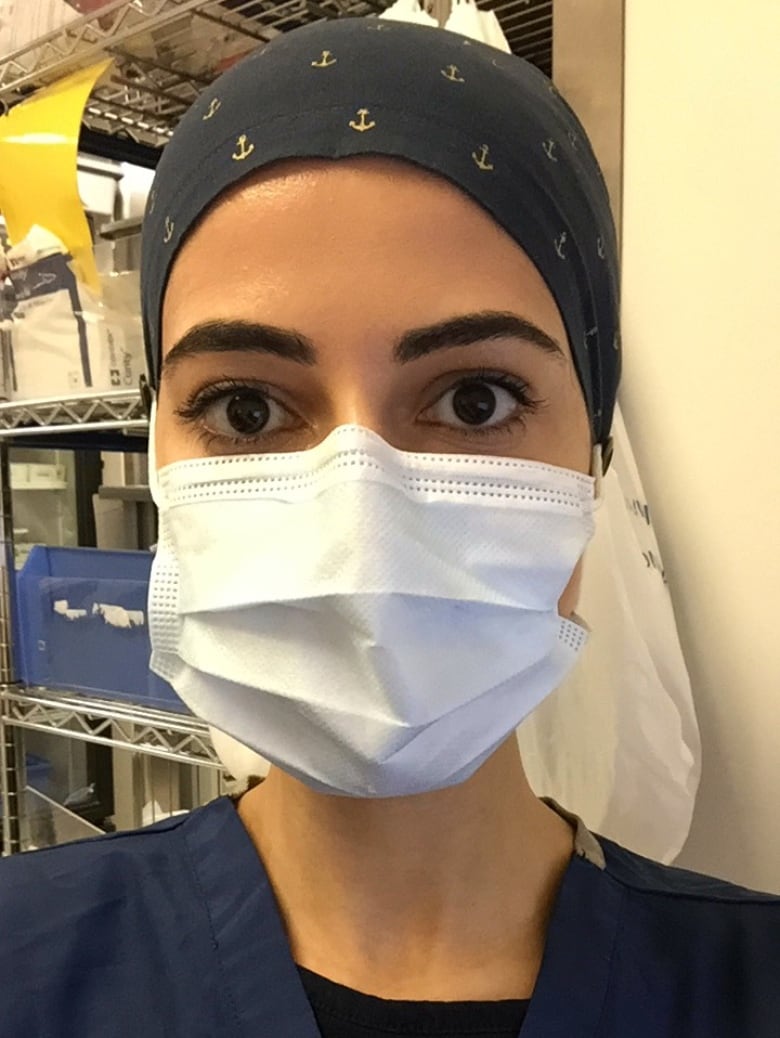Ramadan in a pandemic: Closer to God and family, but also the fridge
Observant Muslims discovering new challenges, but also unexpected benefits

Muslims in Ottawa who are observing Ramadan say they're still finding ways to connect with their families, their communities and their God, despite the pandemic.
CBC reached out to ask about the challenges they're facing — and the connections they're making — in a time of COVID-19.
The biggest difference is that families cannot gather together at the mosque to pray.
"We pray at home as a family. We recite the Koran. We do our evening prayers," said Jaouad Haqhaqi, a policy manager with the federal government who's working from home and observing Ramadan along with his wife and their four kids, all under 10.
- Mosques get noise exemption for call to prayer during Ramadan
- Muslims begin marking a subdued Ramadan amid coronavirus closures
"We're missing the community," Haqhaqi said. "But it's just as complete in a way."
He acknowledges that might not be true for every family.
"For a lot of Muslims, it's a very different Ramadan. The evening prayers are the markers that set this month apart from the regular observing of Muslim life."

The Haqhaqi family is tapping into daily sermons and prayer readings, all online.
"It's going to be difficult when we hit the last day of Ramadan and then there's Eid, which is even more communal," Haqhaqi said.
Emdad Khan and his wife are fasting and praying at home, too. Khan is active as a community leader and is worried that important fundraising activities will be hampered.
Khan is also missing the family gatherings. He has four adult children, two of whom live outside Canada.
"They would come [visit] during Ramadan. Now they are not able to come. Plus I have two daughters living in Ottawa with our grandchildren, and they also cannot visit us. During Ramadan, we would normally break the fast once or twice a week with them."

But Khan has been mulling over the philosophical implications of the virus, too.
"We are all actually becoming a little more caring for others. It is a challenge, but it also gives everybody time. It is an opening."
Time with her housebound kids is something Kanwal Imran is actually enjoying. The Barrhaven mother of four is trying to focus on what's been gained rather than what's been lost.
"It's a blessing that we are observing the whole month together as a family at home," Imran said. "We have this time to get connected to our God."
And to each other.
"When they're going to school they are eight or nine hours away [from the house]. Then they come home and we have only four hours, and in those four hours they are usually doing their homework. Then they go to bed."
As an added bonus, the sedentary life they're leading makes fasting a little easier.
"We are not that much tired or … feeling hungry because we are expending less energy."
Parenting during Ramadan while coping with COVID-19 isn't without its challenges.
"It's nothing that I'd imagined I'd ever do," says Shawana Shah, the mother of two children, five and four. Shah is a clinician, a qualifying psychotherapist working at the Roberts Smart Centre in youth mental health.
"Usually every Ramadan you're still going on with your everyday routine of going to work and kids going to school. So this is definitely a big, big change," Shah said.
"Even energy-wise. I find if I'm at home most of the time and am fasting, I'm a little more depleted than when I'm at work. Because at work you can take a minute and take a breather. But when you're at home and you've got kids? 'Mommy? Mommy? Mommy?' So that's definitely a bit of a challenge."

And then there's the proximity to the fridge.
"I find that I'm in the kitchen a lot more than I'd like to be," Shah said.
Shah said she misses the "rejuvenation" of praying alongside hundreds of people at a mosque. She's praying at home but finding "it's a bit harder to get into the spirit of things."
Still, there is virtue in the challenge of observing Ramadan during a pandemic.
"It's an additional trial and hardship that you can actually use to your advantage. It brings you more spiritually closer to your Creator," Shah said.
One unexpected silver lining is that Ramadan this year isn't as frantic.
"I appreciate not having the pressure of hosting and having to prepare. It's been nice to just sit at home and not have to rush," Shah said.

For Sarah-Taïssir Bencharif, an observant Muslim and emergency doctor at The Ottawa Hospital, it was hard enough not being able to drink water during Ramadan. Now she has to wear a mask all day, too.
"My mouth, even before Ramadan, would be getting quite dry," she said. "That's just been a little bit exacerbated with Ramadan, but I'm usually so preoccupied that I forget about it."
Still, even now, even at the hospital, there's an instant sense of fellowship with Muslim colleagues during Ramadan.
"Every time we run into each other at the hospital there's a really nice camaraderie where we wish each other Ramadan Mubarek and we check in on each other."
